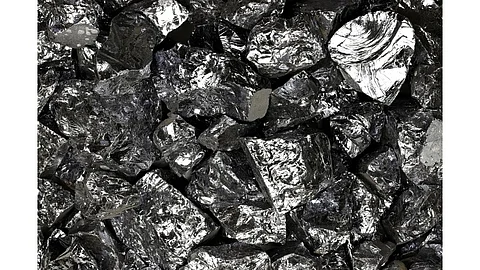

Pivotal Manufacturing Partners has acquired nearly 140 acres at the former Phipps Bend Nuclear Plant site in Tennessee and leased it to Highland Materials
Highland Materials plans a 16,000 MT polysilicon facility on the site, expandable to 20,000 MT annually, supported by $255.6 million in Section 48C IRA tax credits
The company plans to use its proprietary, eco-friendlier silicon production technology that matches electronic-grade performance while reducing costs for ingot, cell, and module makers
The former Phipps Bend Nuclear Plant site in Hawkins County, Tennessee, is set for a new chapter. Pivotal Manufacturing Partners has acquired close to 140 acres here and leased it to Highland Materials for the latter’s planned $1 billion advanced polysilicon manufacturing facility.
The site was originally developed by the Tennessee Valley Authority (TVA) in the late 1970s to develop a nuclear power plant, attracting over $2.6 billion in federal investment. The project was later canceled in the early 1980s due to a meltdown episode that occurred at the Three Mile Island Nuclear Power Plant. Nevertheless, the Phipps Bend location still has significant utility infrastructure and is located within the TVA transmission network.
It is one of the reasons for Highland Materials to seek out this location for its planned 16,000 metric ton (MT) polysilicon manufacturing plant, with which it targets to meet domestic and international demand.
United Renewable Energy and Birdseye Renewable Energy installed a solar power plant outside the structure with almost 3,000 solar panels in 2017. Installed as part of TVA’s Distributed Solar Solutions Program, the solar project sells energy to Holston Electric.
“Partnering with Pivotal Manufacturing Partners is a critical step needed to move the Highland polysilicon manufacturing facility forward at Phipps Bend,” said Highland Materials CEO Richard Rast. “We are excited about the market opportunity, the job creation, the capital investment, and the continued community and state level support this project enjoys.”
The company has secured $255.6 million in Section 48C tax credits for the fab, which can roll out 20,000 MT annually at full capacity, equivalent to 11 GW of solar cells (see US Backs Solar Grade Polysilicon Manufacturing Facility).
Under Section 48C of the Inflation Reduction Act (IRA), advanced energy projects that build clean energy supply chains, drive investments, and lower costs in energy communities are eligible to secure up to 30% of the investments.
All of the $10 billion available for this pool has been allocated. This has been left untouched under the One Big Beautiful Bill Act (OBBBA).
Highland Materials plans to use a proprietary technology that, according to its website, is more environmentally friendly than current technologies like Siemens and Fluidized Bed Reactor (FBR). The company claims that its eco-friendlier silicon matches the performance of products made with electronic-grade silicon. It can lower costs for ingot, cell, and module makers, and works as a direct replacement or blend.
TaiyangNews will explore the US solar PV manufacturing industry in view of the regulatory shifts at the upcoming RE+ 2025 event in Las Vegas, US. It is co-organizing the 2025 Solar Made in USA summit in collaboration with RE+ and EUPD Research. To be held on September 8, 2025, it will feature leading names from the world of solar to discuss the future of US solar and storage manufacturing and future strategies for the players in light of the regulatory hurdles created by the OBBBA. Registrations are open and can be done here.
